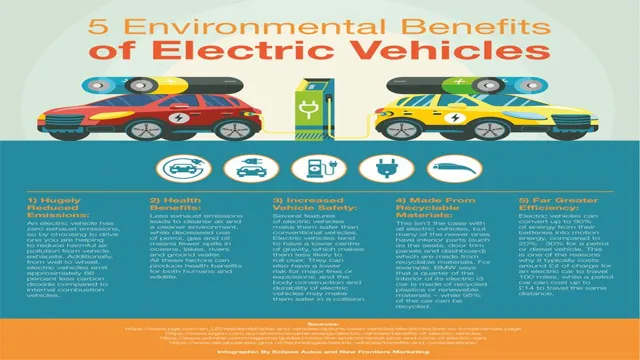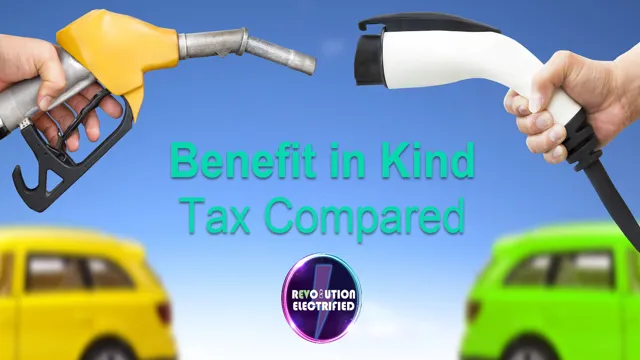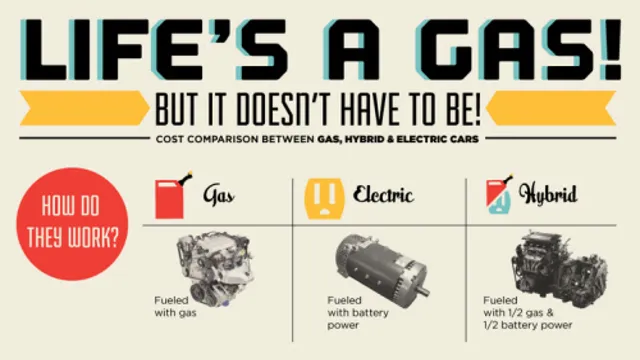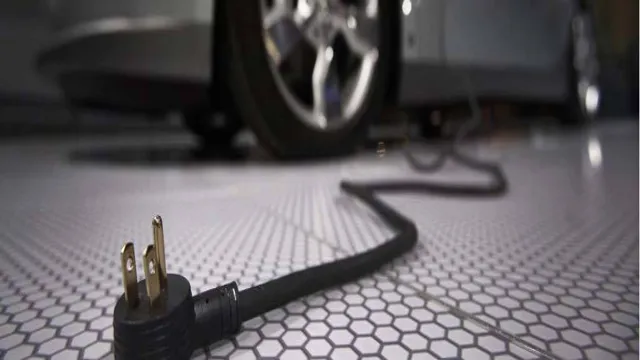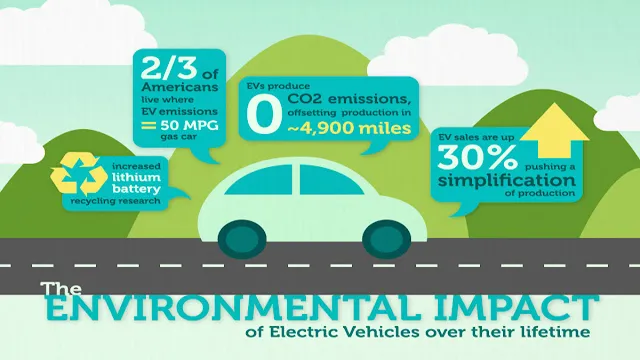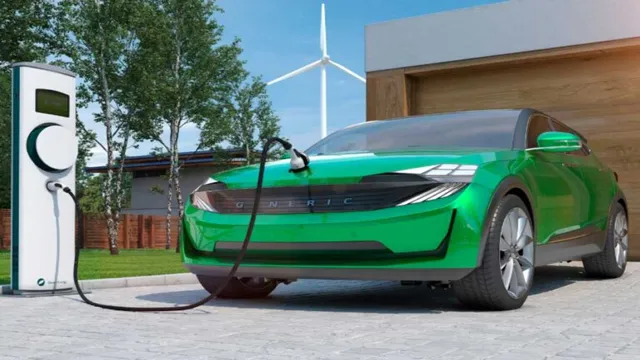Driving towards a Greener Future: Exploring the Environmental Benefits of Electric Cars
Electric cars are touted as the future of transportation, with the promise of reducing our carbon footprint and helping to combat climate change. But have you ever stopped to consider the environmental impact of these supposedly eco-friendly vehicles? While electric cars may emit less carbon dioxide during use, the manufacturing process and disposal of their batteries can have significant environmental consequences. In this blog, we’ll explore the complexities of electric car technology and discuss the various ways it affects our environment.
From the extraction of raw materials to the generation of electricity needed to power these vehicles, we’ll examine the full life cycle of electric cars and uncover some surprising truths about their environmental impact. So, buckle up and get ready to learn about the real cost of driving electric.
Benefits of Electric Cars
When it comes to the environment, electric cars are undoubtedly a more sustainable option than traditional fuel cars. This is because electric cars produce zero emissions when they are driven, meaning that they do not release harmful pollutants into the air that contribute to air pollution and climate change. In fact, studies have shown that transitioning to electric vehicles could drastically reduce air pollution in urban areas and help to combat the effects of global warming.
Additionally, electric cars are much more energy efficient than traditional fuel cars. This means that they use less energy to travel the same distance, which translates to lower energy costs for drivers and less strain on the power grid. Overall, electric cars benefit the environment in a multitude of ways and they are a smart and sustainable choice for those looking to reduce their carbon footprint and fight climate change.
Reduced Emissions
Electric cars have several benefits, and one of the most significant ones is their reduced emissions. By switching to electric cars, we can significantly reduce the carbon footprint and help mitigate climate change. Traditional gasoline-powered cars emit harmful pollutants like carbon monoxide, nitrogen oxides, and particulate matter, contributing to air pollution.
However, electric cars run on rechargeable batteries powered by electricity, which reduces these harmful emissions. According to studies, electric cars emit 40-50% less carbon dioxide compared to gasoline-powered cars, making them a more environmentally friendly option. Additionally, electric cars are quiet, efficient, and low maintenance, making them cost-effective in the long run.
With advancements in automotive technology, electric cars are rapidly becoming more accessible and affordable to the masses, making it easier for everyone to contribute to a greener planet. In conclusion, by reducing emissions, electric cars offer a sustainable alternative to traditional cars and pave the way for a cleaner, greener future.
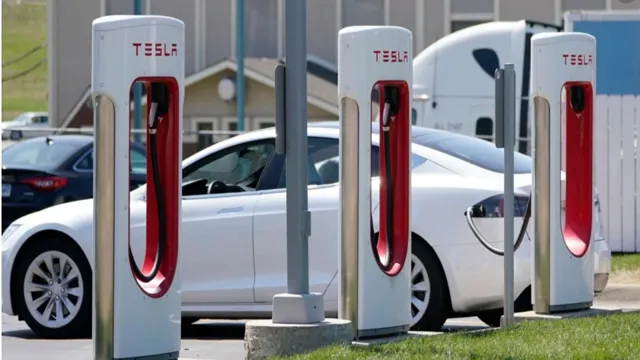
Less Air Pollution
Electric cars have numerous benefits, one of which is less air pollution. Traditional cars emit pollutants such as carbon monoxide, nitrogen oxides, and particulate matter, which can have harmful effects on both the environment and human health. Electric cars, on the other hand, produce zero emissions.
This means that they don’t contribute to air pollution, making them a more environmentally friendly choice. In addition, electric cars are often powered by clean energy sources such as wind or solar power, reducing their carbon footprint even further. By switching to electric cars, we can help reduce the amount of pollution in our air, improving the health of our planet and our communities.
So, why not consider an electric car for your next vehicle purchase? It’s a small step that can make a big impact.
Decreased Dependence on Fossil Fuels
One of the most significant benefits of electric cars is their decreased dependence on fossil fuels. Unlike traditional gasoline-powered vehicles, electric cars run on electricity, which means they don’t contribute to harmful emissions that pollute the environment and contribute to climate change. When we charge our electric cars, we’re using mostly clean energy from renewable sources like wind, solar, and hydroelectricity.
By driving an electric car, we’re reducing our carbon footprint and doing our part to combat climate change. Furthermore, the cost of recharging an electric car is much cheaper than filling up a gas tank, making it a more financially feasible option in the long run. Not only are electric cars better for the environment, but they’re also more economical and sustainable, making them a smart choice for anyone looking to reduce their impact on the planet.
Common Misconceptions
There’s a common misconception that electric cars don’t benefit the environment. But the truth is, electric vehicles are much better for the environment than their gas-guzzling counterparts. Electric cars produce zero emissions from the tailpipe, which means they don’t contribute to air pollution and global warming.
Additionally, electric cars can be powered by renewable energy sources like solar and wind power. This means that even if you charge your electric car using electricity generated from fossil fuels, the overall carbon footprint is still lower than that of a regular car. And as more and more renewable energy sources come online, electric cars will become even more environmentally friendly.
So if you’re looking to reduce your impact on the environment, an electric car is a great option.
Battery Manufacturing Impact
Battery manufacturing has been in the spotlight lately due to its impact on the environment. There are many misconceptions surrounding the production of batteries and their impact. One of the most common misconceptions is that all batteries have a negative impact on the environment.
While it’s true that some types of batteries can have a negative impact, not all batteries are created equal. For example, lithium-ion batteries are generally considered to be more environmentally friendly than traditional lead-acid batteries. Additionally, some battery manufacturers are taking steps to reduce their environmental impact by using renewable energy sources to power their production facilities.
It’s also important to note that the impact of battery manufacturing is just one aspect of the larger conversation surrounding renewable energy and sustainability. While it’s important to continue to examine and improve the environmental impact of battery production, it’s also important to remember the benefits that batteries provide, such as storing energy from renewable sources like solar and wind power. In other words, it’s essential to consider the full picture when discussing the impact of battery manufacturing.
Electricity Generation Impact
Electricity generation impact One of the most common misconceptions about electricity generation is that renewable energy sources like solar and wind power are not reliable or efficient enough to replace fossil fuels. This belief is increasingly becoming outdated as advances in technology have made renewables more efficient and dependable than ever before. Wind turbines and solar panels are now capable of producing electricity at a competitive cost to traditional power plants.
Another common myth is that renewables are more expensive to implement, but the long-term savings on energy bills and the benefits of reducing carbon emissions far outweigh any initial investment. It’s important to remember that every source of energy has its drawbacks and benefits, but with the right combination of renewables and other clean energy technologies, we can achieve a sustainable and reliable energy future.
Life Cycle Analysis
When it comes to Life Cycle Analysis (LCA), there are plenty of misconceptions that people tend to have. One of the most common of these misunderstandings is that an LCA only looks at the environmental impact of a product at the manufacturing stage. However, this is not true.
An LCA actually considers the entire life cycle of a product, from the acquisition of the resources needed for its production all the way through to its disposal. This includes everything from transportation to use to maintenance and repair. By looking at the entire life cycle of a product, an LCA can provide valuable insights into how it impacts the environment and can help guide efforts to reduce its environmental footprint.
Real World Examples
Many people wonder if electric cars really benefit the environment, and the answer is an emphatic yes! In fact, there are many real-world examples of how electric vehicles can reduce pollution and protect the planet. For starters, electric cars emit significantly less greenhouse gases than traditional gasoline-powered vehicles. According to the US Department of Energy, driving an electric car produces 60% less greenhouse gas emissions than driving a similar gasoline-powered car.
Additionally, electric vehicles don’t emit any tailpipe pollutants, which means cleaner air for everyone to breathe. Beyond that, many electric cars are manufactured using recycled or sustainable materials, further reducing their environmental footprint. And, by investing in renewable energy sources like wind and solar power, electric vehicles can pack an even greater punch in the fight against climate change.
So, if you’re concerned about the environment and looking to make a positive impact, investing in an electric car is a great choice.
Norway’s Electric Car Success
Norway’s electric car success is a prime example of how government policies can drive change in the automotive industry. In Norway, electric vehicles make up over half of new car sales due to the government’s incentives and investment in charging infrastructure. These policies have resulted in a cultural shift towards eco-friendly transportation, demonstrating that real progress is possible when governments prioritize sustainability.
Norway’s success also shows that consumers will embrace electric vehicles when they are both affordable and practical. This bodes well for the future of the automotive industry as more companies invest in electrification. As electrification becomes more common, we can expect to see similar changes occur in other countries that prioritize sustainability.
China’s Electric Car Market Growth
China’s electric car market is rapidly growing, and there are several real-world examples of companies capitalizing on this trend. One such company is NIO, a Chinese EV manufacturer that has emerged as one of the market leaders. They have launched several electric car models that have been well-received by consumers and have plans to expand their global footprint.
Another example is Tesla, which continues to sell well in China despite facing increased competition from domestic players. The Chinese government’s policies to encourage the adoption of electric vehicles, such as subsidies and favorable tax rates, have been a significant driver of growth in this market. As more companies enter the space, it will be interesting to see how they differentiate themselves and what new technologies and features they bring to the table.
Overall, the future of the electric car market in China looks bright, and there is no doubt that it will play a significant role in the country’s efforts to reduce carbon emissions and move towards a more sustainable future.
Conclusion
In summary, the question of whether electric cars benefit the environment is a complicated one. While they produce fewer emissions during their operation, the production and disposal of their batteries can have negative environmental impacts. However, with advancements in technology and a shift towards renewable energy sources, electric cars have the potential to significantly reduce our carbon footprint and improve air quality.
So, in the end, it’s not a simple yes or no answer. Perhaps we should all just agree that any step in the right direction is a benefit to the environment, even if it’s a baby step in the grand scheme of things. After all, every journey begins with a single charge.
“
FAQs
How do electric cars benefit the environment?
Electric cars produce zero direct emissions, meaning they don’t pollute the air like traditional gasoline vehicles. They also have the potential to reduce greenhouse gas emissions, depending on the source of the electricity used to power them.
Are electric cars really better for the environment than gasoline cars?
Yes, electric cars are better for the environment than gasoline cars overall. While they may still require energy from fossil fuels to charge, they produce far fewer emissions than gasoline cars, and renewable energy sources can be used to power them.
Are there any environmental downsides to electric cars?
One potential downside is that the production and disposal of batteries for electric cars can have negative environmental impacts if not done responsibly. However, advancements are being made in battery recycling and more eco-friendly materials are being used in production.
Can electric cars help reduce air pollution in cities?
Yes, electric cars can help reduce air pollution in cities by producing zero emissions and helping to lower the overall amount of greenhouse gases released into the atmosphere. They are particularly beneficial for reducing local air pollution in urban areas.
